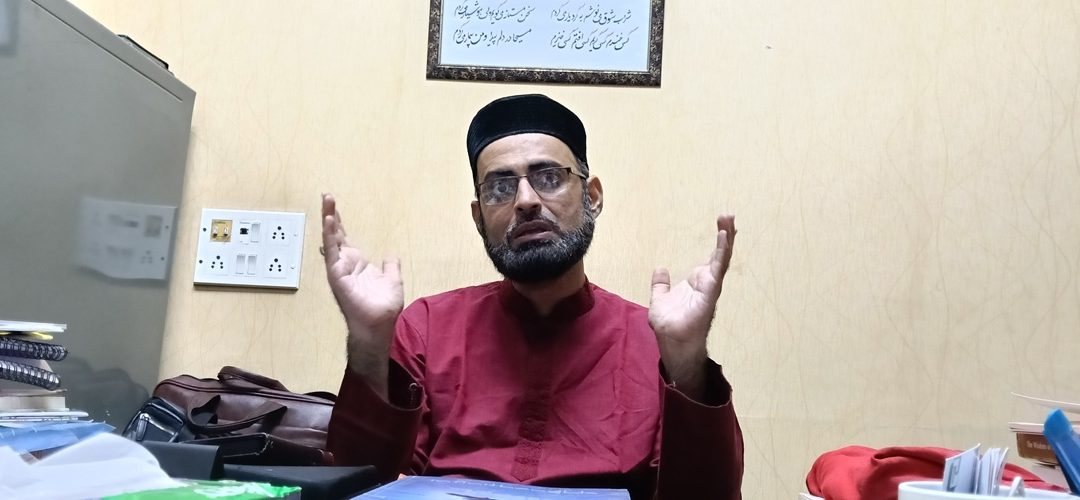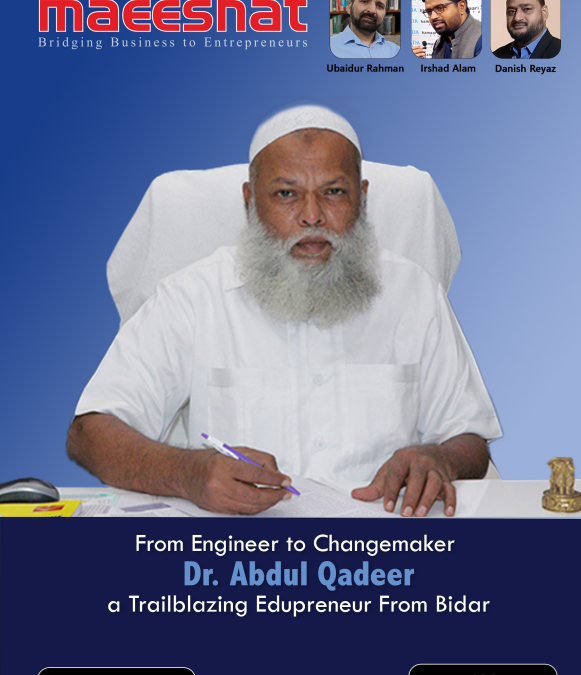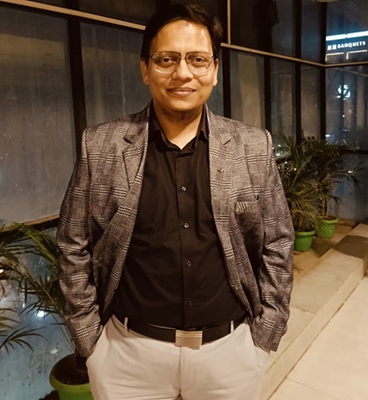In candid conversation with Danish Reyaz for Maeeshat, Saifuddin Soz, former Union Minister and one of the stalwart politicians from Jammu and Kashmir, says: Kashmiri people are content and don’t bring their hunger on streets as they want to remain focused on political resolution of the dispute first.
Excerpts from Interview:
Q: You have had long political career both in the state and Delhi, but we would like to talk to you about the economics of Kashmir –how continuous protests are affecting the economy of the Valley and if priorities of Kashmiri people are different from others.
Ans: Mr. Danish, Kashmir is a very different place, where people are struggling to do their work; they are incurring losses in their businesses but are busy in strikes. For the last thirty years, there has been militancy. Earlier, it was much higher but now is much reduced. Of late, however, the militancy is reviving and there is unrest in the valley. The difference is that a few people resort to violence and stone pelting and in return are shot with bullets. In the recent conflicts alone, more than 150 youth have lost their lives. There is bloodshed but Kashmiri people control their self but don’t lose hope. Hence, to understand Kashmir you have to look at it from different angles.
When we talk about economics then I will say Kashmiri people are content and don’t bring their hunger on streets. You will hardly find Kashmiris begging here; in fact people come from outside to beg here. Nobody died here due to cold, so this is Allah’s blessing to Kashmir. There is no war against poverty. It seems they don’t have any problem. There are indeed some problems but they choose to remain patient.
As for economy, about 70 per cent people get direct employment from horticulture. Tourism has been hyped as an industry but there are very less number of people engaged in tourism, which is just 1-2 % of our economy. Though nature has blessed Kashmir with great fortune, our main source of employment is agriculture and horticulture. Horticulture is Kashmir’s biggest occupation. Second is handicraft. Kashmiri people are blessed with golden hands. Despite facing hardship, they make carpets and shawls and are engaged in embroidery and carpentry. They do something or the other to earn livelihood. But they don’t bring their monetary matters in public because they think that will affect their political life. They don’t talk economics at all.
Q: Due to the conflicts, there has been a fall in exports. The government itself admitted that tourism has almost collapsed, which has also affected the export business to a larger extent. Carpet and handicraft industry is also at loss.
Ans: True, everyone linked to tourism has been affected. They are in trouble; houseboats and handicraft retailers are at loss. But over all, there is no such crisis in Kashmir. At the moment, people are active in politics, especially in Kashmir valley. And they don’t want to turn their eyes from it. But there is indeed unemployment issue; import-export trade is to be expanded. Tourism needs to be promoted.
Q: I think if politics affects economy, economy also affects politics. If economy is instable, how can politics be stable?
Ans: Yes, very much true. Economic factor is very important. The entire struggle is to better the political conditions. We want to resolve the Kashmir issue first, everything else can be seen later. The Kashmir issue is at the centre stage. I am not talking about Jammu, and I am not talking about the Ladakh region either. I am talking about the Kashmir Valley and the government must also focus on Kashmir resolution. But the economic factor is also very important. There is ‘educated unemployment’ since there was free education. But today Kashmir people are only in mood to resolve the political problem.
Q: How do you see Kashmir in the current PDP-BJP alliance?
Ans: This alliance isn’t acceptable to the common people, and they have rejected it. Hence, they are holding strikes. The biggest thing is (Mehbooba) Mufti asked for votes against communal BJP saying they are biased but soon after the election, PDP forged alliance with the same BJP and this shattered the hopes of Kashmiris. People are not accepting this government but Delhi government and Modi regime need someone to shake hands with. I feel this government will complete its term because now they are united on every issue. They don’t care about what will happen later. BJP’s vote bank is safe.
Q: What do you say about DSP’s killing and stone pelting?
Ans: We condemn the lynching of the police officer. It must not have happened. Stone pelting is reflection of the anger of youth. The generation that has grown up in the last 30 years is of those who were born in the shadows of guns. They grew up hearing about Kashmir dispute and the consequent struggle which is still going on. Their collective anger has been expressed by the Hurriyat. Last year, you must have seen everything was closed from transport to factories, shops were shut, and employment was frozen. Now it’s a routine in Kashmir. The government needs to talk to all stakeholders to resolve the issue. They must talk to Hurriyat besides political parties and must resolve the issue through dialogues. The Modi govt. must answer people’s anger. We will help in solving the issue. The situation is not as bad as being propagated by the media. But it is a fact that people of Kashmir are sad. The Modi govt. has much delayed it, which is disturbing the entire country not just Kashmir.







0 Comments